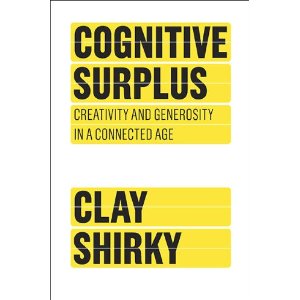About this talk
Clay Shirky looks at “cognitive surplus” — the shared, online work we do with our spare brain cycles. While we're busy editing Wikipedia, posting to Ushahidi (and yes, making LOLcats), we're building a better, more cooperative world. TED Video of Talk.
About Clay Sharpey
Clay Shirky believes that new technologies enabling loose collaboration — and taking advantage of “spare” brainpower — will change the way society works. Learn more.
Core Point: Over a trillion hours a year in cognitive surplus–Internet and media tools are shifting all of us from consumption to production. We like to create; we like to share. Now we can.
More From TED on The Rise of Collaboration
Recommended by Dr. Kent Myers. His additional commentary:
This talk gets at something that could go into the proposal for Virtual Systemic Inquiry (VSI). I need to emphasize that the VSI products have civic value. That motivates participation, but we also need to make it a little more obvious and easy how to participate, in order that generosity can flow more readily from more people. That's what I was trying to get at by making projects more standardized and quick. Software can let that flow, as Shirky says. The process and products should probably be pretty in some way too, like IDEO (also LOL cats).




